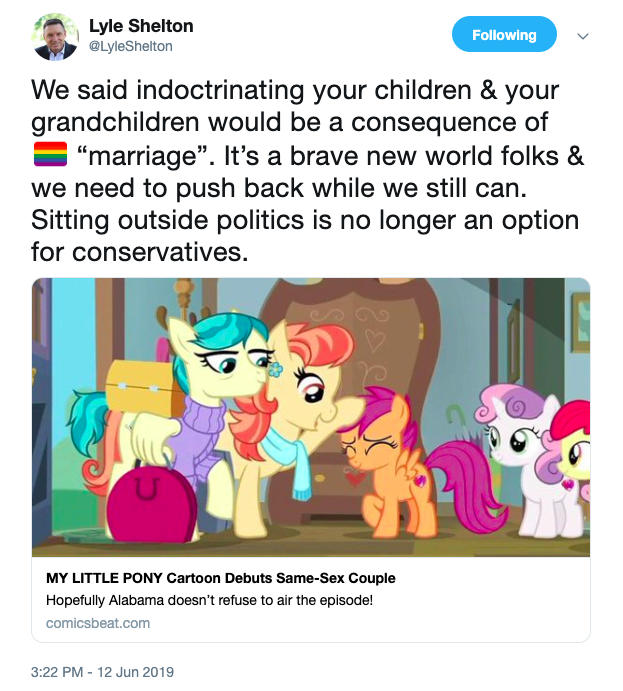Lets face it. I probably wouldn’t have voted for Labor at the next election anyway. Like millions of other Australians, I’m feeling completely disenfranchised by the major parties in Australian politics.
While part of this is because neither side is particularly likeable – and that goes double for the leaders of the parties. Another part of the problem driving my political apathy is that I don’t think it makes a huge difference who is in power in Australia.
Both major parties are essentially centrist. Both parties have pretty sound credentials. And while extremist pundits on either side of the spectrum want to run around saying that the sky is going to fall in if the other party gets/stays in power – it’s simply not true.
We’ve got it pretty good in Australia. Ridiculously good. Our first world conditions are improving. Yesterday’s luxuries are necessities, tomorrows luxuries are becoming necessary quicker than ever before. So complaining about the political scene in Australia where neither major party is out to oppress a minority, or start a war, is pretty much the epitome of a #firstworldproblem.
Because we’re a first world country there are many people – myself included – who think that the decent, and necessary, thing to do is to provide aid to developing countries to help raise the standard of living and save lives across the globe.
This is, if you’re not into altruism, good foreign policy. More stable countries around the globe means less wars, less refugees, less poverty. To channel Toby Ziegler’s “free trade stops wars” argument – we’re better off and more secure when other countries are better off and more secure.
The Labor party has been accused of back-pedalling away from their surplus promise faster than an off balance unicyclist. But at some point, a promise isn’t worth keeping. If the promise shouldn’t have been made in the first place. Sometimes you’ve just got to wear changing circumstances on the chin. Sometimes you’ve got to admit you were wrong – with a flat out mea culpa, a “deficit we had to have” speech, or an explanation that while economic times have changed, and while a surplus was the government’s best intention, certain other social and moral obligations have to be kept… any of these things is a better than the alternative the Australian Labor government has settled on.
How many foreign lives need to be cut short so that Labor gets its $1 surplus? What is it worth to gain that surplus, but forfeit our nation’s soul in the process.
Here’s what’s happening. Labor is cooking the books a little, to allocate $375 million of foreign aid spending to Australia’s refugee program. Ben Thurley, from the Micah Challenge, says this is allowable under Australia’s aid obligations.
He says:
“The Foreign Minister says this isn’t a cut to foreign aid, and in a strict sense he is right. Under Organisation for Economic Cooperation and Development (OECD) rules (pdf), governments are allowed to report the first 12 months of in-country support costs for refugees – the official term for “aid”. The Foreign Minister even points to three donor countries who claim more refugee assistance as aid than Australia is reportedly planning to claim, the US ($895 million in 2010), France ($435 million in 2010) and Sweden ($397 million in 2010).”
While it might not “strictly” be the case, it’s pretty clear what the government’s intentions are – a member of their own back bench is speaking out against taking the politically expedient route to a surplus.
This aid saves lives. It improves the status quo in measurable ways. Here are some stats from World Vision, via the Micah Challenge again:
World Vision has estimated that in the last year alone Australian aid money saved at least 200,000 lives, provided education for more than half a million children and gave disaster assistance to more than 10 million people. It is these outcomes that are threatened by this plan.
Aid works. It’s not enough to throw this burden to Christian charities, and support them with your dollars – the same charities, who have people at the coal face in these countries, are calling for the government to be more generous, not less. Compassion has this useful mythbusting post on the benefits of foreign aid.
TEAR Australia is also speaking out against the proposed changes.

They’re calling people to take action – and providing some tips and easy(ish) ways to do it.
Tim Costello, World Vision CEO, wrote this piece in The Age, summing up the situation nicely in terms of how the Australian public at large should respond…
“They know that funds designated for poor communities beyond our shores should not be plundered to support the government’s own political interests. Australians will rightly view this decision as a sleight of hand, not least because it is driven by a desperate political imperative to reach a budget surplus.”
Both he, and the Micah Challenge, point out that there’s a bit of a mystery in terms of what programs are going to lose funding via this move.
Each of these groups is a Christian aid group. Doing good work in less fortunate countries, in the name of Jesus. And making a difference. You suspect if they could do the job without government aid, they wouldn’t be all that concerned about the cuts. But concerned they are.
The Australian Christian Lobby has also issued a statement – calling for the government to rethink.
“The government certainly has an obligation to fulfil its commitment to asylum- seekers and refugees in Australia but to do this at the expense of poverty-stricken communities overseas is unfair,” he said.
He said it’s the second time this year the government has not followed through on its commitment to foreign aid.
“In May the government announced it would delay increasing aid spending to 0.5 per cent of GNI by 2015,” he said.
“Australia’s current commitment stands at 0.35 per cent of GNI – well short of what is needed to eradicate poverty and help developing nations implement poverty-reducing policies,” he said.”
Should Christians respond to these cuts?
Evangelical Christians have been rightly scared by the “social justice” or “social gospel” movement – a product of the approach to mission adopted by the ecumenical movement in the mid-to-late 20th century. Basically people from a bunch of different Christian traditions got together – and because they couldn’t agree on what the gospel was, decided to focus on what they could agree on – looking after the poor. So they saw gospel work, God’s mission, as work on social transformation, the liberation of the poor and oppressed. That’s a little simplistic – there was also a group who genuinely think looking after the poor is all we’re cared to do, with a mantra that goes something like “preach the gospel always, never with words,” it seems they collapse these verses from Luke 4 into just the bits I’ve bolded:
“The Spirit of the Lord is on me,
because he has anointed me
to proclaim good news to the poor.
He has sent me to proclaim freedom for the prisoners
and recovery of sight for the blind,
to set the oppressed free,
19 to proclaim the year of the Lord’s favor.”
Evangelicals – and I’m one of them – are right to emphasise that part of the church’s role – the defining part – is to proclaim the good news. That’s how poor people, and all of us, are truly liberated.
But as is the case with most correctives – the pendulum has swung to the point where evangelicals now don’t want to touch anything that looks like social justice. Preferring “just to do gospel work.” I read a tweet just yesterday that basically wrote the whole movement off.
This is silly. How can we claim to love people if we aren’t seen to be loving them. This, again, is where ethos – our character, how we live, has to form part of how we communicate our message. We love people because God loved us. But if we want to be loving people by sharing the gospel, part of that means living in a way that makes it clear that we believe our message. That it shapes and excites us.
Social justice – provided it is performed by Christians, operating as Christians, is gospel work. It underpins proclamation. Social justice without this intent is still good work.
Social justice is there, as an imperative, for the people of God, in both the Old and New Testament.
The Micah Challenge, for example, takes its name from a cracker of a Bible verse – from Micah 6:8.
He has shown you, O mortal, what is good.
And what does the Lord require of you?
To act justly and to love mercy
and to walk humbly with your God.
Which, coupled with a little bit of James 1:27…
“27 Religion that God our Father accepts as pure and faultless is this: to look after orphans and widows in their distress and to keep oneself from being polluted by the world.”
Jesus says looking after the poor is a sign that we belong to him… in Matthew 25.
34 “Then the King will say to those on his right, ‘Come, you who are blessed by my Father; take your inheritance, the kingdom prepared for you since the creation of the world. 35 For I was hungry and you gave me something to eat, I was thirsty and you gave me something to drink, I was a stranger and you invited me in, 36 I needed clothes and you clothed me, I was sick and you looked after me, I was in prison and you came to visit me.’
37 “Then the righteous will answer him, ‘Lord, when did we see you hungry and feed you, or thirsty and give you something to drink? 38 When did we see you a stranger and invite you in, or needing clothes and clothe you? 39 When did we see you sick or in prison and go to visit you?’
40 “The King will reply, ‘Truly I tell you, whatever you did for one of the least of these brothers and sisters of mine, you did for me.’
Looking after the poor is part of how Christians serve our king.
How should Christians respond to these cuts
If the charities who look after the poor around the globe – in the name of Jesus – are saying that foreign aid is necessary for making change, saving lives, and caring for people, and if caring for people is something that we’re called to do, then it follows that we, as Christians, should do what we can to see that aid continue… doesn’t it?
But what should we do? As Christians?
Pray. Definitely.
Give. Absolutely. The charities mentioned above do great work, in different and creative ways. So by all means – give directly to these charities. But they’re saying that’s not enough. The small government libertarian in me wishes this was an issue that could be solved without government intervention. By individuals. And there are plenty of generous individuals out there. But it’s not a level playing field – and libertarianism needs a situation where people are treated as equals, and where opportunities are essentially equal across the board – and that’s not the situation here.
Speak out. This isn’t just about awareness raising. This is about participating in a democracy. As Christians, but also as citizens. This is a political decision. The charities I’ve mentioned above have pretty much unanimously suggested that we respond by contacting our local federal members, and the leaders of each major party – which is as simple as googling their name and sending an email.
I think this is a good idea.
I realise I’m turning into a complete lefty at times – which is weird. I’ve only ever voted conservative. But I like to think that there are certain political issues that transcend a really arbitrary political spectrum that has been imposed on us through lack of choice, and the political reality of a two party system. So much complexity gets lost in that pursuit of political simplicity.
I’m hesitant to push hard and fast political conclusions here – but a truly Christian response is shaped by Jesus – who sacrificially gave himself up for those who follow him, out of love. At great cost. We’re called to imitate him. He calls us to love the poor. If the best way to love the poor, around the world, is to encourage the government to spend money on doing that – then we should. Right? You may think there are better ways to do it – and I’m more than open to suggestions. Perhaps these charities are unanimously wrong.
But I think Tim Costello’s right – the public knows this is a politically expedient move to save a stupidly promised surplus – so I wonder if a bit of public pressure, in the media, is called for. So don’t just send your email to your MP, send it as a letter to the editor of your paper, call a talk back radio station when this topic comes up. And if you’re in a situation where you can send a media release, on behalf of a Christian organisation – do that.
Here’s a brief sample. To finish. It covers the bits I’ll be including in my own emails to local members and party leaders. But this sort of thing works best if people are putting their own thoughts into their own words.
I really like something that a very wise friend of mine said on this front recently – he said it’s a real shame that Christians have a reputation for being conservative when it comes to this sort of political or social issue – it’d be great if we could be seen to be progressive.
Church X calls for government to increase, not slash, foreign aid commitment
Church X is dismayed by recent reports that the Federal Government is looking to slash foreign aid spending by $375 million to fund refugee care and in a bid to deliver a surplus.
Church X recognises that economic times are tough both domestically, and internationally, and suggests that wealthy countries like Australia should see this as an opportunity to generously invest, and increase foreign aid.
Church X spokesperson X said that while foreign aid is a smart investment in global stability, it also saves lives.
“We believe in the sovereignty of nations, but we also believe that God has generously provided our nation with wealth, and that this wealth presents an opportunity for Australia to be generous to fellow humans around the world.”
“We are dismayed that the government is looking to cut aid when it is needed most. Times of economic instability are precisely the times when wealthy countries should be concerned about the poorest of the poor.”
“We believe that all human lives are of equal value, because all humans are made in the image of God, and that if it is in our power to save lives – and if this is something our nation is obliged to do – we should be using the resources God has provided our nation to be generous to others.”
“As Christians we believe the ultimate display of generosity has been offered to all of us, through the death of Jesus, on the cross, in our place. This sort of sacrifice for others is the model we seek to follow, and a model that has led to significant social transformation in the last two thousand years.”
“Australian charities, with workers on the ground in those countries Australia’s aid benefits say that foreign aid is essential for saving lives. Our charities do great work. But it’s not enough.”
“On this basis, Church X is calling on the Federal Government, and our local member NAME, to increase Australia’s commitment to foreign aid to a level that makes Australia the most generous nation in the world, not decrease our aid spend in pursuit of a politically expedient headline, or a victory in a weekly news cycle.”
ENDS



